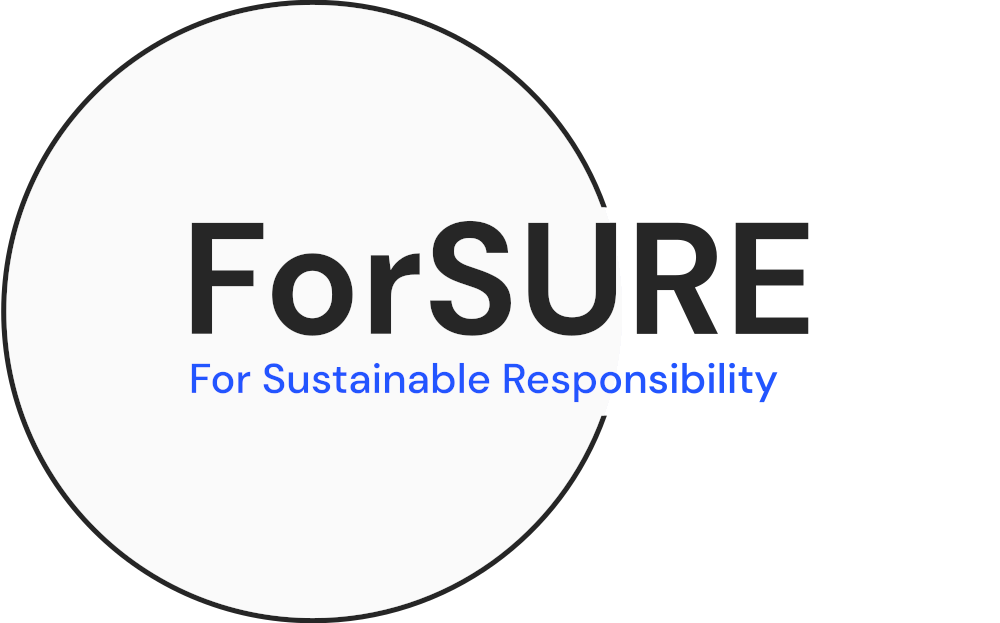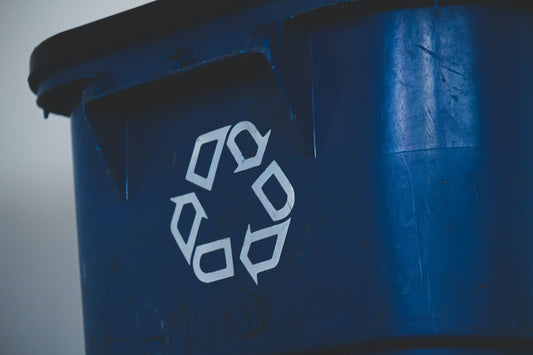EPR and CSR: Driving the Circular Economy Forward
April 12, 2024 Niclas BrinkmannTable of Contents
EPR (Extended Producer Responsibility) and CSR (Corporate Social Responsibility) have emerged as buzzwords in the modern business world for organizations attempting to uphold social responsibility. EPR is a more recent idea that focuses on the environmental imprint of company's products. CSR has been around for a while and focuses on a company's moral obligations and societal impact.
EPR goes beyond the conventional CSR concept and requires producers to take responsibility for every stage of a product's lifespan. This implies that businesses are accountable for both the creation of their goods as well as their disposal or recycling, which enables to set the building block for a circular economy.
The circular economy aims for materials to remain in rotation within the economy for as long as possible. This requires products to be reusable and recyclable. However, circularity of products is not legally mandated yet. EPR is one step in this direction. It encourages companies to assess and improve their resource usage through taking responsibility for the end-of-life stage of their products. Thus, it is laying the groundwork for a more sustainable, circular economy.
Due to the fact that environmental problems transcend national borders, EPR and CSR are not only corporate but also global obligations. Technological developments are facilitating the global implementation of EPR and CSR efforts by businesses. Technology is a game-changer, from blockchain for transparent supply chains to AI-driven garbage sorting.
EPR Evolution: Foundation to Future
Over the years, corporate social responsibility (CSR) has seen substantial change. Initially, it was primarily about charity and volunteering in the community, with businesses making donations to nonprofits or funding regional events. But just as public expectations have evolved, so have corporate obligations.
Enter Extended Producer Responsibility (EPR), a notion that has grown out of CSR naturally. Environmental product stewardship is the main emphasis of EPR, especially when it comes to waste management and product lifespan.
The public's perspective of CSR and EPR has been significantly shaped by social media and international events like climate conferences. These platforms provide a forum for action and awareness, encouraging businesses to be more open, responsible and to be focused on circular economy. The national policies based on the agenda of climate conferences frequently filters down to company regulations, enhancing the significance of EPR in contemporary CSR.
Sustainable Corporate Conduct Redefined by EPR and CSR
Sustainability is becoming a general expectation rather than a specialized issue. Businesses are becoming aware of the need to include sustainable practices into their business models if they want to remain competitive. As a result, CSR activities have begun to incorporate more environmentally conscious objectives, such lowering carbon emissions and encouraging renewable energy.
EPR has now established itself as a crucial element of CSR efforts as a result of this trend towards sustainability. EPR encourages businesses to assume responsibility for their products long after they have left the shop shelves by focusing on the post-consumer phase of a product.
Furthermore, when making investment selections, investors are increasingly taking sustainability into account. Strong EPR and CSR policies have proven to be a beneficial effect on a company’s market value in this regard. This is further being encouraged be the policy efforts of the EU in its strategic development towards climate neutrality. Now, more and more businesses are moving towards a circular business model thanks to the additional financial incentive, making EPR a crucial component of contemporary business.
EPR within CSR Frameworks
EPR focuses on product responsibility and environmental accountability, particularly with regard to waste management, whereas CSR may cover a broad range of moral obligations, from employee welfare to community involvement.
This focus enables businesses to address a key element of their environmental effect head-on. Companies may tangibly show their commitment to sustainable practices by using EPR.
EPR is also a risk management technique that assists businesses in anticipating and reducing environmental liabilities. Moreover, corporations' efforts to develop items that are simpler to recycle or repurpose frequently inspire innovation. This innovation-related feature provides potential for growth as well as risk avoidance.
Legal implications
In many jurisdictions, the development of EPR is not just a trend but a legal requirement. Governments are enacting legislation requiring businesses to handle the end of life of their products. Hence, EPR is developing into both a moral and a legal requirement because it frequently carries consequences for non-compliance.
Companies are being compelled by such rules to reconsider their strategy and include EPR efforts. Doing the right thing is no longer enough; you also need to follow the law.
Governments are continuously developing EPR regulations, despite companies opinions about EPR. Nonetheless, EPR laws vary greatly from one country to the next, so it's critical for corporations to understand the legal framework in the various markets they are operating in.
EPR Success Stories
Many businesses have effectively incorporated EPR into their CSR programs, serving as role models for others. Unilever and L’Oréal in the sustainability game. They're not just talking a good game; they're actually making big moves by recycling and repurposing their goods. This effort is showing everyone that a circular economy isn't just a dream; it's very much achievable.
These companies are demonstrating that EPR is far from just a buzzword. It's a real, actionable strategy that benefits both the planet and their bottom line. Through their initiatives, they're reducing waste, cutting costs, and enhancing their image among environmentally conscious consumers. It's proof that going green can create real value.
Notably is further, that Small and medium-sized businesses (SMEs) are advancing quickly in EPR, despite the fact that huge firms frequently receive the attention. These lesser players provide their agility and creativity. Furthermore, as customers are increasingly growing more aware of the importance of pro-environmental behaviour, they are preferring brands that are dedicated to sustainability. Thus, successful EPR policies may provide businesses further with a competitive edge.
EPR Meeting Sustainability Demands
People aren’t just looking for talk anymore; they want to see real eco-friendly action from their favourite brands. That’s where the whole idea of EPR kicks in. It’s become a big deal, influencing not just what we buy, but who we’re loyal to. It's a wake-up call that we're more than just shoppers – we're people who deeply care about our planet and expect the same from the companies we support.
Jumping on the EPR bandwagon isn’t just about ticking boxes for legality; it’s about companies showing they really understand and share our concerns. This approach isn’t just good PR; it’s about genuinely doing good stuff for the environment. It’s how brands start to stand out in our minds as more than just sellers – they become partners in our quest for a greener earth.
And nowadays, a tweet or a Facebook post can go a long way. Social media has turned into a megaphone for people who want to make a difference, making it clear to companies that we’re paying attention and that we care deeply. EPR should be a goal for companies that want to keep us on their side. It’s all about showing true commitment to our shared values, especially when it comes to protecting the environment. That kind of honesty and effort? That’s what keeps us loyal.
Economic Upsides of EPR
EPR implementation is a wise commercial decision in addition to an ethical one. Next to the fiscal advantages mentioned above, businesses that use EPR frequently discover that they may cut waste management expenses and even make money through recycling programs. The circular economy approach, in which goods are made to be recycled or reused, may also create new sources of income.
EPR may therefore be a financially feasible component of CSR by providing both financial incentives and environmental advantages. Businesses who have embraced EPR claim a better bottom line in addition to an improved brand image.
Furthermore, EPR activities frequently result in the creation of jobs, especially in the recycling and waste management industries. As a result, the economic advantages of EPR are enhanced further. Lastly, EPR's long-term economic viability is becoming more and more obvious as businesses who have embraced these techniques demonstrate resilience and adaptability in the face of shifting market conditions.
EPR Challenges: A Critical View
While you may have to agree until now that EPR has a lot of advantages, it also has its drawbacks. For small businesses in particular, logistical challenges in product collection and recycling might be a barrier. Additionally, there is the possibility of "greenwashing," in which businesses overstate their sustainability efforts for commercial gain.
These difficulties can still be overcome by using EPR software like ForSURE to track their data and be sure to navigate the legal maze to comply to all regulations. Companies may execute successful EPR initiatives that withstand scrutiny with sufficient planning and openness. Being sincere in your efforts and open in your reports is crucial.
Third-party audits may be extremely important in guaranteeing the efficacy and openness of EPR projects. These audits can assist businesses in avoiding the dangers of "greenwashing". Furthermore, EPR has been criticized for raising product prices, as businesses could charge customers more to cover waste management costs.
The Future of EPR in Sustainability
EPR's position inside CSR appears to be promising. EPR is poised to become a regular practice in the business sector as technology advances make recycling and waste management more effective and as public and political pressure grows.
EPR is expected to develop and more naturally incorporate into CSR efforts in the future. Businesses who implement EPR today will not only be in front of the curve but also better equipped for a time when circular economy is not just a choice but a must.
Blockchain and artificial intelligence (AI) have the ability to further simplify EPR programs, making them more transparent and efficient. EPR also significantly contributes to fulfilling international sustainability objectives, such as the Sustainable Development Goals (SDGs) of the UN, underscoring its significance for the development of CSR.
While EPR might increase costs slightly, it's a big win for sustainability and really sets the stage for a circular economy, balancing environmental goals with business needs.
FAQ
-
How does Extended Producer Responsibility (EPR) influence sustainable product design?
-
How does Corporate Social Responsibility (CSR) relate to environmental sustainability?
-
What is the Circular Economy and how does it benefit businesses and the environment?
-
How can companies implement EPR strategies effectively?
-
What role do consumers play in supporting EPR, CSR, and the Circular Economy?




